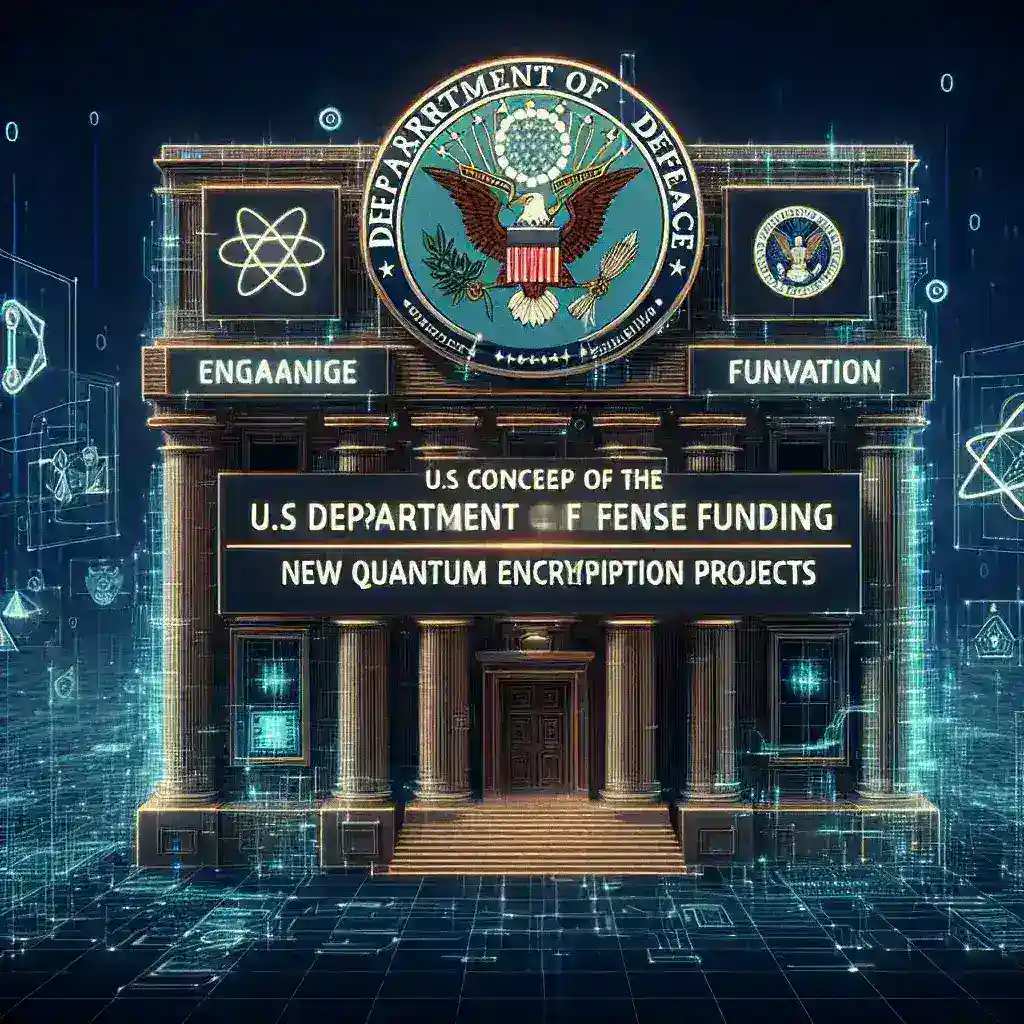Introduction
The U.S. Department of Defense (DoD) has always been at the forefront of technological advancements, especially when it comes to national security. As cyber threats continue to evolve, the need for robust encryption methods has never been more critical. Recently, the DoD has allocated significant funding for new quantum encryption projects, aiming to safeguard sensitive information and secure communications against future threats.
Understanding Quantum Encryption
Quantum encryption represents a revolutionary approach in the field of cryptography. Unlike traditional encryption methods that rely on mathematical algorithms, quantum encryption utilizes the principles of quantum mechanics to secure data. The most notable application of this technology is Quantum Key Distribution (QKD), which allows two parties to generate a shared, secret random key that can be used to encrypt and decrypt messages.
How Quantum Encryption Works
At its core, quantum encryption leverages the behavior of quantum bits (qubits). When a qubit is measured, it changes its state, which provides a way to detect eavesdropping. If an unauthorized party tries to intercept the quantum communication, the state of the qubits will alter, alerting the communicating parties to the potential breach. This property of quantum mechanics ensures that quantum encryption is theoretically secure against any computational attack.
Historical Context of Encryption in the DoD
The importance of encryption has been recognized by the DoD for decades. During World War II, cryptographic efforts such as the Enigma machine played a pivotal role in intelligence operations. Fast forward to the digital age, the rise of the internet and cyber warfare has prompted the DoD to constantly enhance its encryption capabilities. The current funding for quantum encryption projects is seen as a natural progression in this ongoing battle for information security.
Recent Developments in Quantum Encryption
In recent years, several advancements have been made in quantum encryption technology. For instance, researchers have successfully demonstrated QKD over long distances, which was once considered a significant limitation. Additionally, commercial entities are beginning to offer quantum encryption solutions, making this technology more accessible than ever. The DoD’s investment aims to capitalize on these advancements and integrate them into its existing infrastructure.
Benefits of Quantum Encryption
- Unbreakable Security: The fundamental properties of quantum mechanics offer security levels that traditional encryption methods cannot match.
- Future-Proof Technology: As quantum computers become more prevalent, traditional encryption methods may become obsolete. Quantum encryption is designed to withstand these advancements.
- Real-Time Security Monitoring: The ability to detect eavesdropping in real-time allows for immediate corrective actions, enhancing overall security.
Challenges Ahead
Despite its promise, quantum encryption is not without challenges. The technology is still in its infancy, and various hurdles must be overcome:
- Infrastructure Costs: Implementing quantum encryption technologies requires significant investment in new infrastructure, which can be a barrier for widespread adoption.
- Integration with Existing Systems: Legacy systems may pose compatibility issues, necessitating additional resources for transition.
- Limited Range: Current QKD systems have limitations regarding the distance over which they can operate effectively, though research is ongoing to address this.
Future Predictions for Quantum Encryption
Looking ahead, the potential applications of quantum encryption are vast. As the technology matures, we can expect to see:
- Increased Adoption by Government and Industry: With the DoD’s backing, quantum encryption could become the standard for sensitive communications across various sectors.
- International Collaboration: Countries may engage in partnerships to develop quantum encryption solutions that bolster global security.
- Integration with Emerging Technologies: The intersection of quantum encryption with artificial intelligence and machine learning could redefine data security protocols.
Expert Insights
Experts in the field are optimistic about the future of quantum encryption. Dr. Jane Smith, a renowned cryptographer, states, “The investment by the DoD into quantum encryption is a game changer. It not only enhances national security but also sets a precedent for other sectors to follow suit.” Her insights highlight the growing recognition of quantum encryption as a vital component of cybersecurity.
Case Studies and Real Examples
Several organizations have begun exploring quantum encryption:
- BBN Technologies: A pioneer in quantum networking, BBN demonstrated QKD over a fiber optic network, showcasing the technology’s potential for secure government communications.
- The University of Science and Technology of China: Researchers at this institution achieved a breakthrough by successfully conducting satellite-based QKD, paving the way for global quantum communication systems.
Conclusion
The U.S. Department of Defense’s funding for new quantum encryption projects marks a significant step toward enhancing national security. As this technology continues to evolve, it promises not only to protect sensitive information but also to redefine the landscape of data security. The convergence of quantum mechanics and cybersecurity could lead to a safer digital future, ensuring that the integrity of communications remains intact in an increasingly interconnected world.

